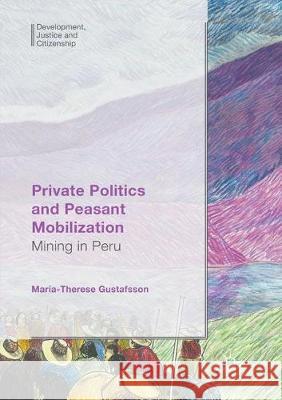Private Politics and Peasant Mobilization: Mining in Peru » książka
topmenu
Private Politics and Peasant Mobilization: Mining in Peru
ISBN-13: 9783319869261 / Angielski / Miękka / 2018 / 232 str.
Kategorie:
Kategorie BISAC:
Wydawca:
Palgrave MacMillan
Seria wydawnicza:
Język:
Angielski
ISBN-13:
9783319869261
Rok wydania:
2018
Wydanie:
Softcover Repri
Ilość stron:
232
Oprawa:
Miękka
Wolumenów:
01











